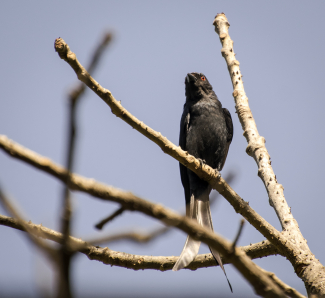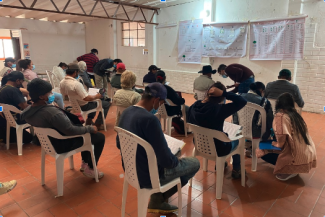FILTER
Displaying 31 - 40 of 321 publications
Are the forest conservation practices sustained after Payment for Environmental Services (PES) programmes end? Using a sample of 268 (former) PES recipients and non-recipients from the Budongo-Bugoma...
| Peer Reviewed | Uganda
Despite the potential for forest resources to act as a less costly shock-coping strategy for rural households, evidence of the nexus between access to forest resources and the nature of coping...
| Peer Reviewed | Uganda
Central and South America (CSA) are highly exposed, vulnerable, and strongly impacted by climate change, a situation amplified by inequality, poverty, population growth and high population density...
| Book Chapter | Central America and Mexico
This study aims to establish whether three technology-specific attributes – convenience, compatibility with cultural needs and social reputation – influence the sustained use of clean cooking...
| Peer Reviewed | Uganda
Global and local stressors have led to rapid declines in coral reef health. The high rates of coral degradation have motivated restoration initiatives worldwide. Evaluation of these initiatives has...
| Peer Reviewed | Central America and MexicoAbstract Sub-Saharan Africa’s urban ecosystem is under considerable pressure due to rapid urban sprawl and high direct dependency on the natural ecosystem. But the value of nature conservation or…
| EfD Discussion Paper | Tanzania
Abstract: With increasing scarcity and spatial dispersion of tree resources, Uganda's forest sector – similarly to several other countries in Sub-Saharan Africa – has experienced a shift from the...
| Peer Reviewed | UgandaAbstractWe investigate the behavioural responses of natural common-pool resource users to three policy interventions—sanctioned quotas, information provisioning, and a combination of both. We focus on…
| Peer Reviewed | South Africa, Global HubAbstract Payments for ecosystem services (PES) programs exist globally and at times shift behaviors. Unlike protected areas, PES compensate land users, raising local acceptance of conservation. Yet…
| Peer Reviewed | ColombiaThe report provides a framework for ensuring that marine spatial planning (MSP) does not worsen poverty and gender inequality in developing countries, and that potentially marginalised groups are…
| Report | South Africa, Kenya, Global Hub
